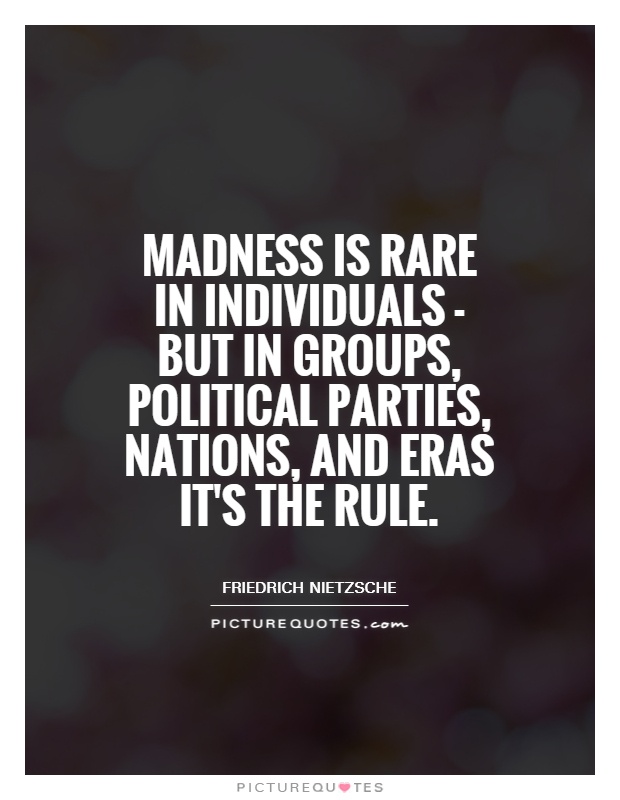Madness is rare in individuals - but in groups, political parties, nations, and eras it's the rule

Madness is rare in individuals - but in groups, political parties, nations, and eras it's the rule
Friedrich Nietzsche, a German philosopher known for his critical and often controversial views on society, politics, and human nature, once famously stated, "Madness is rare in individuals - but in groups, political parties, nations, and eras it's the rule." This quote encapsulates Nietzsche's belief that collective behavior can often lead to irrationality, extremism, and destructive tendencies.Nietzsche's observation about madness being more prevalent in groups than in individuals can be seen throughout history. When individuals come together in groups, whether it be political parties, nations, or eras, they often lose their sense of individuality and critical thinking. Instead, they conform to the group mentality, following the beliefs and actions of the majority without question. This groupthink can lead to irrational decision-making, mob mentality, and even violence.
Political parties, in particular, are prone to this kind of collective madness. Members of a political party often adhere to a strict ideology and are quick to demonize those who do not share their beliefs. This can lead to polarization, extremism, and a lack of compromise or cooperation. In extreme cases, political parties can become cult-like in their devotion to a leader or cause, leading to authoritarianism and oppression.
Nations, too, can fall victim to collective madness. Nationalism, xenophobia, and militarism can take hold, leading to wars, genocide, and other atrocities. In times of crisis or uncertainty, people often look to their nation for security and identity, which can lead to a dangerous us-versus-them mentality.
Eras, or periods of history, can also be characterized by collective madness. For example, the rise of fascism in Europe in the 20th century or the Salem witch trials in the 17th century are examples of how mass hysteria and irrationality can grip entire societies.












 Friendship Quotes
Friendship Quotes Love Quotes
Love Quotes Life Quotes
Life Quotes Funny Quotes
Funny Quotes Motivational Quotes
Motivational Quotes Inspirational Quotes
Inspirational Quotes